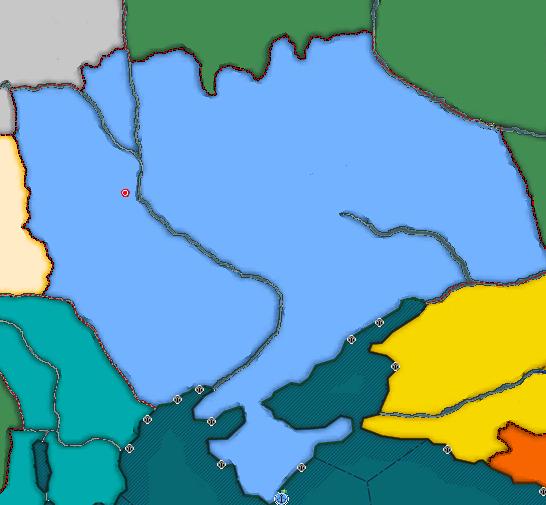Ukraine
From Kaiserreich
| Line 9: | Line 9: | ||
== History == | == History == | ||
| - | Following centuries of subjugation under the Russian Empire, Ukraine was ‘liberated’ following ‘the Peace of Nations’ at Brest-Litovsk. Under German pressures that culminated in a coup by Pavlo Skoropadsky, what initially began as a socialist inspired ‘Ukrainian People’s Republic’ saw a an inexorable transformation into an authoritarian Hetmanate, which was essentially a mechanism to support the interests of landowners. However, due to unrest at these developments compromised had to be met, and at the end of 1919 Maximillian von Habsburg was accepted as titular King of Ukraine, a new constitution drafted and the elected legislative Rada restored.However, it soon emerged that these ‘concessions’ were mere tokens - the franchise was limited according to strict property qualifications, and as a result true power remained securely with the ‘Hetman’, a ‘Chief Executive’ position which combines both civil government and military command functions. Since the coup Ukraine has been transformed (thanks mainly to German investment and favouritism in trading arrangements) into an agricultural giant. However, the lack of representative government and the increasingly desperate position of the masses in relation to the rich has lead to a rapidly rising Social Democratic movement, which shows increasing signs of radicalisation under the inspiration of the Socialist government in Georgia. This internal threat combined with the dangers posed by ambitious states on her frontiers has lead many observers to doubt Ukraine’s ability it to survive the coming years. | + | Following centuries of subjugation under the Russian Empire, Ukraine was ‘liberated’ following ‘the Peace of Nations’ at Brest-Litovsk. Under German pressures that culminated in a coup by Pavlo Skoropadsky, what initially began as a socialist inspired ‘Ukrainian People’s Republic’ saw a an inexorable transformation into an authoritarian Hetmanate, which was essentially a mechanism to support the interests of landowners. However, due to unrest at these developments compromised had to be met, and at the end of 1919 Maximillian von Habsburg was accepted as titular King of Ukraine, a new constitution drafted and the elected legislative Rada restored. |
| + | |||
| + | However, it soon emerged that these ‘concessions’ were mere tokens - the franchise was limited according to strict property qualifications, and as a result true power remained securely with the ‘Hetman’, a ‘Chief Executive’ position which combines both civil government and military command functions. Since the coup Ukraine has been transformed (thanks mainly to German investment and favouritism in trading arrangements) into an agricultural giant. | ||
| + | |||
| + | However, the lack of representative government and the increasingly desperate position of the masses in relation to the rich has lead to a rapidly rising Social Democratic movement, which shows increasing signs of radicalisation under the inspiration of the Socialist government in Georgia. This internal threat combined with the dangers posed by ambitious states on her frontiers has lead many observers to doubt Ukraine’s ability it to survive the coming years. | ||
Revision as of 12:29, 5 October 2007
Ukraine
Ukraine is a nation in East Europe.
Politics
History
Following centuries of subjugation under the Russian Empire, Ukraine was ‘liberated’ following ‘the Peace of Nations’ at Brest-Litovsk. Under German pressures that culminated in a coup by Pavlo Skoropadsky, what initially began as a socialist inspired ‘Ukrainian People’s Republic’ saw a an inexorable transformation into an authoritarian Hetmanate, which was essentially a mechanism to support the interests of landowners. However, due to unrest at these developments compromised had to be met, and at the end of 1919 Maximillian von Habsburg was accepted as titular King of Ukraine, a new constitution drafted and the elected legislative Rada restored.
However, it soon emerged that these ‘concessions’ were mere tokens - the franchise was limited according to strict property qualifications, and as a result true power remained securely with the ‘Hetman’, a ‘Chief Executive’ position which combines both civil government and military command functions. Since the coup Ukraine has been transformed (thanks mainly to German investment and favouritism in trading arrangements) into an agricultural giant.
However, the lack of representative government and the increasingly desperate position of the masses in relation to the rich has lead to a rapidly rising Social Democratic movement, which shows increasing signs of radicalisation under the inspiration of the Socialist government in Georgia. This internal threat combined with the dangers posed by ambitious states on her frontiers has lead many observers to doubt Ukraine’s ability it to survive the coming years.

